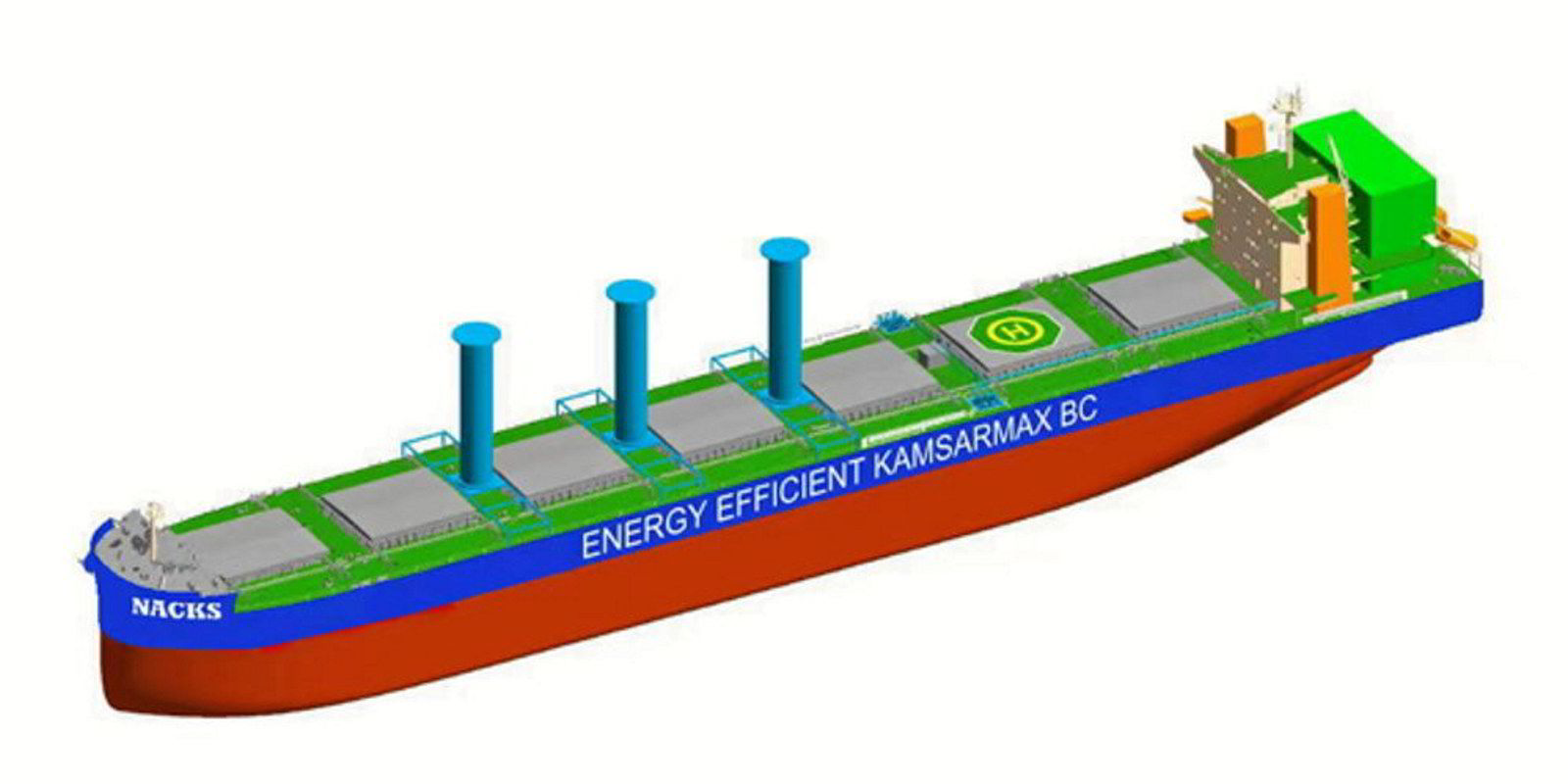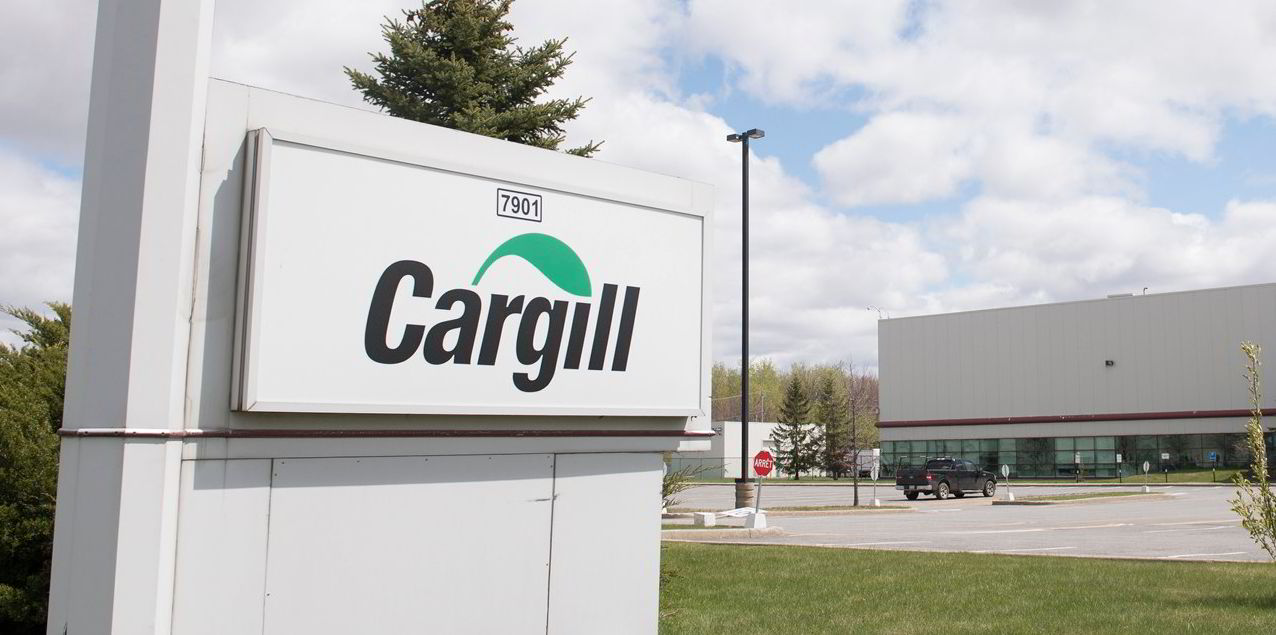Dry bulk giant Cargill and a team of partners have designed a kamsarmax bulker that will be ready to accommodate both methanol fuel and wind propulsion.
The US commodities player’s Cargill International unit has teamed up with Greek shipowner Minerva Dry, classification society Lloyd’s Register and Chinese yard group Nantong Cosco KHI Ship Engineering (Nacks) to develop the design.
Cargill has taken a leading role in powering bulkers of this size with wind-assisted propulsion and in methanol by ordering the first bulker powered by the fuel.
But the joint development project marks a step towards combining the two technologies as shipping faces growing pressure to tackle its greenhouse gas emissions.
Nikos Kakalis, global bulk carriers segment director at UK-headquartered Lloyd’s Register, said the project has designed an energy-efficient vessel that is also future fuel-ready.
“And it is absolutely vital that stakeholders across the maritime value chain continue to work together to provide commercially viable bulk carriers to meet the sector’s demands whilst prioritising designs that comply with tightening greenhouse gas emission regulations,” he said.
Cargill Ocean Transportation is now operating the Mitsubishi Corp-owned 80,700-dwt kamsarmax Pyxis Ocean (built 2017) with wingsails developed by BAR Technologies’, and president Jan Dieleman has told TradeWinds that the company is considering whether to focus its wind propulsion investment on newbuildings.
Unlike that ship, the new design would be ready for rotor sails.
Cargill also has charters for at least five methanol-fuelled newbuildings, with two owned by J Lauritzen and two by Mitsui & Co.

Chris Hughes, decarbonisation specialist at Geneva-based Cargill International, said Nacks, Minerva and Lloyd’s Register bring knowledge and experience to the project, in addition to a willingness to challenge the status quo and explore new technology and ideas.
“Rather than starting with a conventional fuelled design and adding on some limited ‘readiness’ we essentially designed a methanol-fuelled ship first, and worked backwards from there for the methanol-ready version,” he said. “The result is a design that is truly ready and feasible for conversion.”
Nacks technical director Mingfeng Lu said the methanol-ready design is another breakthrough in the shipbuilder’s efforts to develop carbon-neutral vessels.
“By optimising the hull form and implementation of energy-saving devices, the vessel provides significant improvement in energy efficiency compared with the last generation of kamsarmax,” he said.



